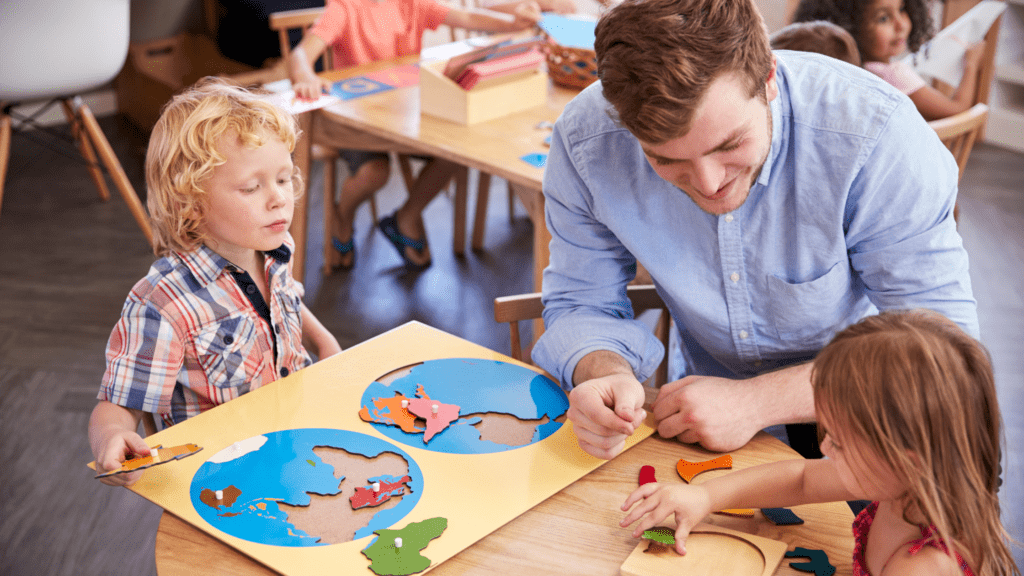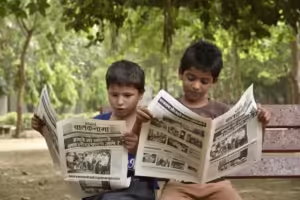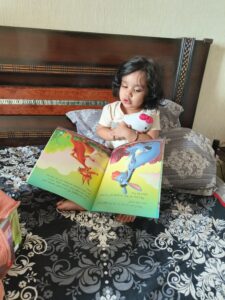Through the previous blogs on our website, we have tried to create awareness about Montessori Education- what is Montessori education, the working cycle, and its importance. Many of us know that Montessori education is limited to toddlers or preschoolers. But is it correct? Is Montessori education only limited to preschoolers? The answer is no.
Importance of Montessori Grooming
Dr. Maria Montessori, who started this education, has defined cycles from 0 to 24 years of age. She believed that learning skills should be developed through child-led discovery. As she addressed it, “the strength of Montessori’s pedagogy lies in its scientific accuracy.”
A well-prepared environment that allows accomplishing things and learning to make a well-groomed adult. Furthermore, this environment is not limited to toddlers. And we need to inculcate various skills in children until they become adults. They should be attentive, patient, active, and ready to face any situation.
What age does Montessori go up to?
Each child is unique. According to the Montessori pattern, there are 4 age divisions or cycles in a child’s life from 0 to 24 years of age.
- 0 to 6 years
- 6 to 12 years
- 12 to 18 years
- 18 to 24 years
Precisely, each cycle is also divided into subs as per the development of the child. These age groups are divided by the assortment of cognitive, emotional, social, and intellectual growth of the child.
The Montessori teaching-based schools divide this pattern with a name for each period and break it into short cycles-
- Infant from 0 to 1.5 years
- Toddler from 1.5 to 2.5 years
- Primary from 2.5 to 6 years
- Elementary from 6 to 12 years
- Erdkinder from 12 to 18 years of age.
Each period of this cycle unlocks the complete potential of the child and prepares the child for the next phase.
Learning through self-accomplishment
In a Montessori homeroom, every kid freely searches for boosts from their current circumstance and the surroundings. In professions, the working environment of the future requires self-heading, drive, and versatility. Montessori youngsters comprehend their touchy periods and understand their capacities with the energy to work at their own speed.
An infant or a toddler has an absorbent mind wherein they try to gather the most of the information from their surroundings and comprehend them. At this age, the child tries to fit in according to the environment he is surrounded by.
Hence, in these years a well-prepared environment is one of the utmost important things is to up-bring a well-aware adult. Peer-based learning should be encouraged to provide the child with varied and rich learning. Ideas and sensibilities are shared and exchanged to develop a well-groomed, grown-up child. A five-year-old can also figure out how to run their classrooms and community.
Development of the Adolescent Phase
During this growth phase, the children display extraordinary limits because of all their exceptional work. The Montessori technique and its well-arranged planned and painstakingly made exercises all blend to energize these delicate periods for a well-groomed child.
An elementary age-group child gradually moves to extract thinking and the materials that are mirrored in the progress shown by the child.
The young adult is on a journey to get oneself, and this is actually what cosmic instruction does, which makes an adolescent ready to face the world. All degrees of development from birth through youth have these development phases which drive the kid starting with one place, and then onto the next.
Teenager Development through Montessori Techniques
The youngster or the teenager has extraordinary physical and social requirements. Since the scholarly abilities and the intellectual are high during the stage, they need work to channel their energies conveniently. At this stage, the youngsters know well about their being, and their aim and understand the relationships.
Through Montessori education, children can explore:
- How to distinguish between their assets and attempt to extend their inclinations.
- How to utilize their surroundings and adapt to the environment.
- How to analyze situations and look for logical results.
- How to understand the reasons for their feelings and explore them.
- How to work in groups and express themselves.
Final Take Away




